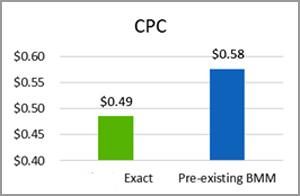Researching trends for 2017, I happen across a fascinating source called quantumrun.com which basically excites and frightens in equal measure.
This website offers forecasts up to 2050 on anything from climate change and technology to law. Among its predictions for next year is that a surgeon in Italy will perform the first human head transplant. A revelation that had me rapidly googling the surgeon’s name to see what I could find out. (It’s true, he does plan to, if he can get financial backing.)
Picking my way through the other polarised announcements, I read that next year brings both the approval to start private lunar missions and Donald Trump into the White House. Swings and roundabouts.
The good, the bad and infinity…
In other good news; the world’s first HIV vaccine is predicted to be commercially available and world sales of electric vehicles will reach 4,600,00. Two ‘good’ things I would never thought possible and I feel cheered.
But I grow nervous at the thought that the world’s population is forecast to reach a staggering 7,515,284,000. While nearly half – 3,320,000,000 – will be internet users. The half using the internet is good surely, but what about the half not using the internet?
I raise an eyebrow at the news that global mobile web traffic will equal 6.5 exabytes and global internet traffic will grow to 100 exabytes. But I don’t quite know what an exabyte is. It sounds big. Is that good or bad? Already I’m confused and feeling that nauseous sensation that I get when I try and understand infinity…
True excitement
But out of the muddling darkness, more good news: new battery tech could double smartphone battery life. Yes! I punch the air with true excitement. This is something that means something to me! Something clearly relevant to my life. Something I grapple with every day that will make a real difference to my existence.
And then I feel guilty. What about the half of the population that don’t use the magic internet? They probably haven’t got a mobile phone and couldn’t give two hoots that its battery size is doubling. I feel small. What about Donald Trump? I feel even smaller.
Personalise news
But that is what we human beings do. We personalise information and news. And sometimes news is too big and too overwhelming to process – three billion people who don’t or can’t use the internet is too much like infinity. I don’t want to think about it. But my phone not dying while I’m stuck on a freezing platform waiting for a train that isn’t coming – that’s a tangible first world solution that I can get on board with.
So it shouldn’t surprise us that when we try and provide a steady stream of company news, employees subconsciously vet it for relevance. They mentally reject anything too vast to process and suck up the stuff that has a direct meaning to them and their job. Especially in unsettling times.
We want to tell them the big stuff, the wow stuff, the stuff they should care about. But, naturally their reaction is: Does it affect me? Why should I care? What’s in it for me?
Replaced by robots
But I’m still reading and experiencing mood swings on this predictions site. I find out that 47% of jobs will eventually disappear. Bad. Over time, we’ll be replaced by robots. Well, half of us will. Those of us who are left can expect cut-throat management styles. But we will get fancy offices and lots of technology to play with. So that’s alright then.
Next year isn’t far away. Donald Trump, Brexit… it’s hard to say exactly how it’ll all pan out. But even before we have to worry about job-stealing robots, we face a shaky economy and ensuing downsizing, restructuring, mergers and acquisitions.
Nuggets of truth
If your job is to communicate to people affected by the inevitable change that 2017 will bring, are you ready offer them the honest, transparent communications that you promise in your company values? Can you turn them away from the rumour mill and towards you?
Can you give them those nuggets of truth, the personalised storytelling that will help them to drag themselves up by their bootstraps and get on with the job they’re there to do? Will you be able to focus on the employees who remain, who feel battered and lost? Can you remind leadership that the workforce is made up of many individual humans, who feel overwhelmed, scared for the future, guilty for having escaped the cuts?
Amid the highs and lows, can you find the messages, the stories that will resonate with your audience on a human level?
Business & Finance Articles on Business 2 Community(33)





